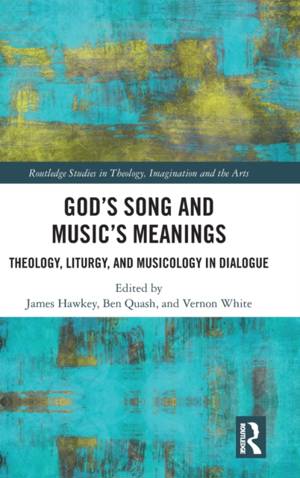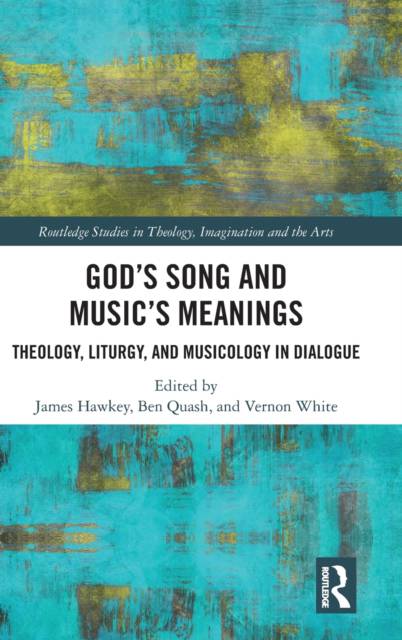
- Retrait gratuit dans votre magasin Club
- 7.000.000 titres dans notre catalogue
- Payer en toute sécurité
- Toujours un magasin près de chez vous
- Retrait gratuit dans votre magasin Club
- 7.000.0000 titres dans notre catalogue
- Payer en toute sécurité
- Toujours un magasin près de chez vous
God's Song and Music's Meanings
Theology, Liturgy, and Musicology in Dialogue
Description
Taking seriously the practice and not just the theory of music, this ground-breaking collection of essays establishes a new standard for the interdisciplinary conversation between theology, musicology, and liturgical studies. The public making of music in our society happens more often in the context of chapels, churches, and cathedrals than anywhere else. The command to sing and make music to God makes music an essential part of the DNA of Christian worship.
The book's three main parts address questions about the history, the performative contexts, and the nature of music. Its opening four chapters traces how accounts of music and its relation to God, the cosmos, and the human person have changed dramatically through Western history, from the patristic period through medieval, Reformation and modern times. A second section examines the role of music in worship, and asks what--if anything--makes a piece of music suitable for religious use. The final part of the book shows how the serious discussion of music opens onto considerations of time, tradition, ontology, anthropology, providence, and the nature of God.
A pioneering set of explorations by a distinguished group of international scholars, this book will be of interest to anyone interested in Christianity's long relationship with music, including those working in the fields of theology, musicology, and liturgical studies.
Spécifications
Parties prenantes
- Editeur:
Contenu
- Nombre de pages :
- 196
- Langue:
- Anglais
- Collection :
Caractéristiques
- EAN:
- 9781472478641
- Date de parution :
- 07-08-19
- Format:
- Livre relié
- Format numérique:
- Genaaid
- Dimensions :
- 156 mm x 234 mm
- Poids :
- 467 g

Les avis
Nous publions uniquement les avis qui respectent les conditions requises. Consultez nos conditions pour les avis.





